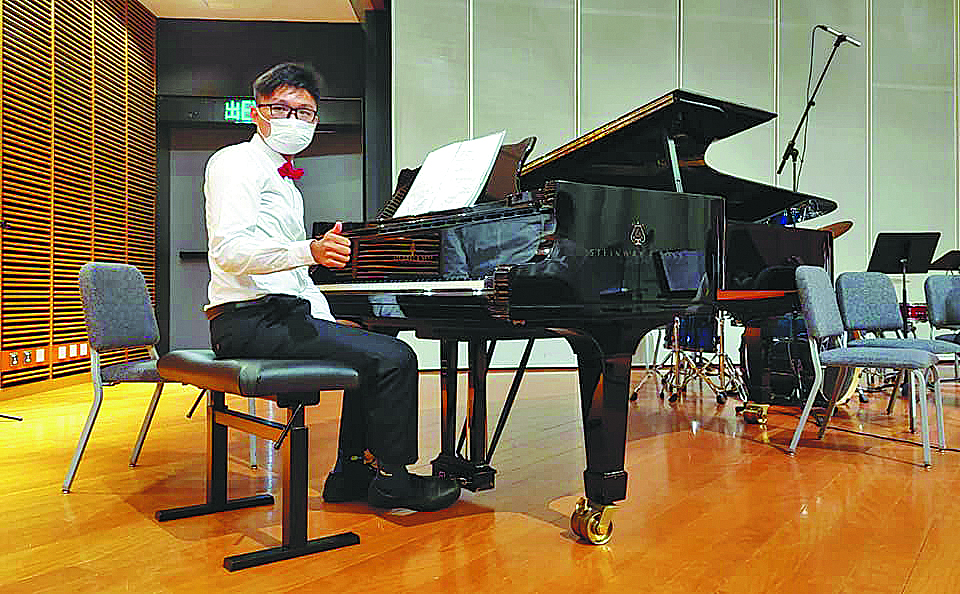New education opportunities bring fresh hope


Growing numbers
There are more than 70,000 SEN students in Hong Kong. As the city government has promoted integrated education over the years, assessments for SEN students have been expanded, and their exact number has risen.
In 2000, there were 3,000 people with autism in Hong Kong, but that number had risen to 130,000 by 2021, according to data from social organizations for SEN students.
Hong Kong's SEN students have equal opportunities to complete 12 years of primary- and secondary-level studies at school. They can attend special schools that are designed with their requirements in mind or select mainstream schools to help them integrate into society.
However, after graduation, their choices, based on their abilities, usually consist of day activity centers, sheltered workshops or vocational training centers.
Those who achieve high scores in the Diploma of Secondary Education can enter university. However, that has been extremely rare in recent years: in 2019, more than 3,000 SEN students took the DSE exam, but only 43 were admitted to universities.
Those who are unable to live independently usually attend activity centers to receive daily care, while those who can care for themselves but are not qualified to work in wider society go to sheltered workshops that offer a specially designed protective environment. They get paid for doing easy work, such as packing goods alongside others with SEN.
People who can live and learn independently and pass the interview at the training center can be admitted for two or three years' vocational training. They learn basic skills such as typing, packing and cleaning, then enter the workplace through open recruitment.
When they finish, the center matches them with jobs. For the past 50 years, such centers have been regarded as the best choice for SEN people because they can match them with jobs offered by the government or businesses, with the employment rate reaching 60 percent every year.
In Hong Kong, there are three training centers-the Caritas Lok Mo Integrated Vocational Training Center, the Hong Chi Pinehill Integrated Vocational Training Center and the Shine Skills Center-which help thousands of SEN students.
However, during the recent fifth wave of the epidemic, all the centers were closed and offline training was suspended.
Amid the economic downturn, that meant many SEN students could not receive training or find jobs, while those who had completed the training and entered the workplace were the first to be dismissed, Wallace Lau said.
Della Yang's 21-year-old son Tsang Wai-yin, who has autism with mild intellectual disability, has only had one internship-working in a laundry for five days-during the past three years of vocational training at the Caritas Lok Mo center.
Before the epidemic started in 2020, Tsang went to the center five days a week, from 8:30 am to 4 pm, for a range of training sessions, such as cooking, cleaning, paperwork, baking and housekeeping.
Later, he took occasional classes, both online and offline, until the fifth wave struck the city at the end of last year. He was left with online training courses that required sustained practice, such as cooking.
Yang, who found it "ridiculous" watching Tsang take online cooking training, said SEN students need hands-on practice, and the online classes were less useful than watching related videos on YouTube.
Lacking cooking equipment and ingredients, most students could not follow the instructor to practice-they could only stare at the screen and zone out.
Tim Kwan, the occupational therapist at Tsang's training center, blamed the economic downturn for the scarcity of internships and jobs for SEN students, saying they usually work in restaurants, hotels and theme parks, which have all been hit hard by COVID-19.
The center had partnered with Hong Kong Disneyland to provide internships and jobs, but that association was suspended when the amusement park had to close, dismissing thousands of employees.
Before the epidemic, about 60 percent of the center's students could get jobs, but that number fell to 40 percent in 2020 and then 20 percent in 2021, Kwan said. Nicky Chan, the center's senior manager, has warned of a lingering impact, even when the epidemic stabilizes.
On April 25, the center resumed a half-day face-to-face training course and internship programs, plus job introductions for students.
However, many parents refused job opportunities as they thought their children's training was inadequate and doubted their ability to enter the workplace. Now, there are concerns about a possible delay to student graduations.
The limited number of internships and job opportunities will become even scarcer, Chan said, adding that the situation has created backlogs of students waiting for training, resulting in a vicious circle.


















